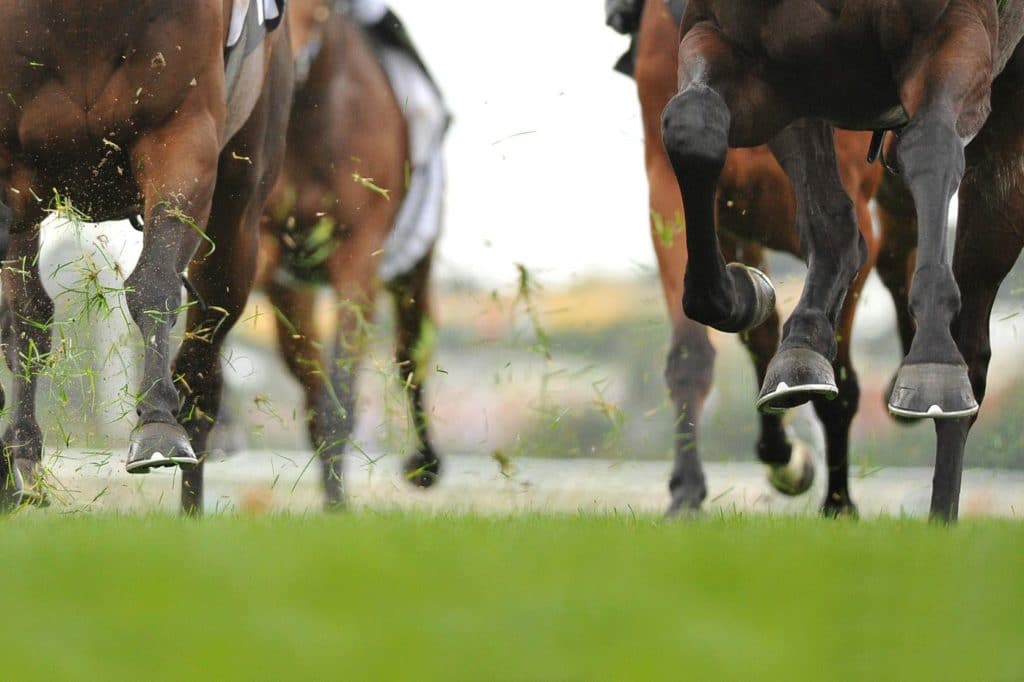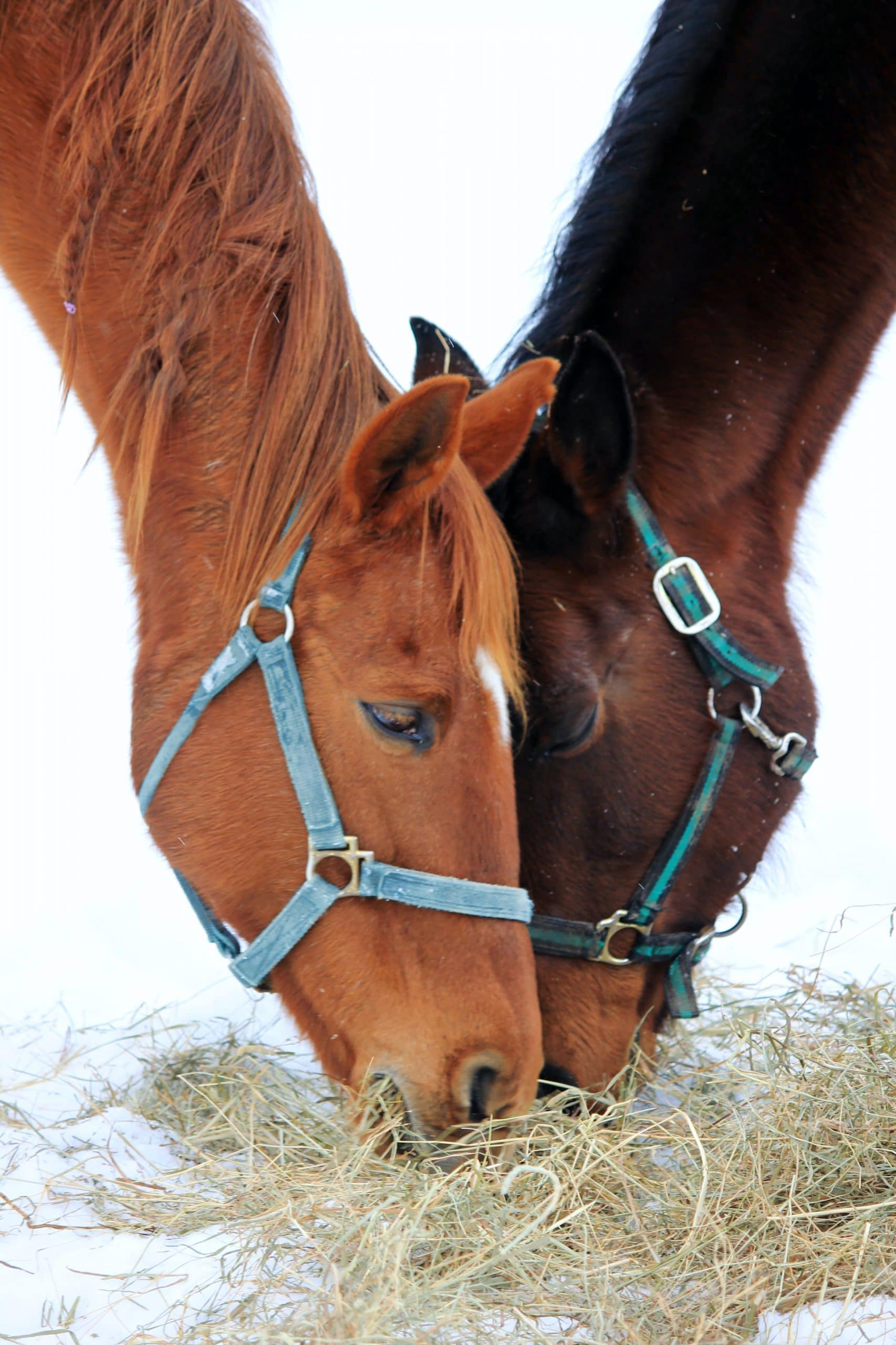Horses have a fragile digestive system. It is important to give them food adapted to their metabolism and activity. What do horses and ponies eat to ensure their good health and well-being?
HORSE FEEDING: HOW TO MAKE A BALANCED RATION?
Horses are herbivores and feed mainly on forage in their natural state. With the development of horseback riding, the dietary needs of horses have evolved and require a richer diet. But horses are also sensitive animals. Some horses may therefore need more specific feeds depending on their state of health.
FEEDING THE HORSE IN ITS NATURAL STATE
In the wild, horses feed on pasture grass and tender flowers. They travel in herds and find everything they need on a daily basis. The quality of the grass can vary depending on the area available, the season and the weather conditions. It is generally in spring that the grass is the richest. In fact, at this time of year, it is full of mineral salts contained in the soil. It is therefore the ideal time to put your horse to rest or in convalescence.
WHAT DO HORSES EAT AT WORK?
When he lives in the stable, he has less (or no) access to pasture. The horse’s diet must therefore be adapted according to its effort and lifestyle. The basis of his diet is always forage (hay, straw), so it is essential that he has enough of it.
If your horse is active on a regular basis, his hay rations can be supplemented with concentrated feeds, in the form of flaked or pelleted feeds for horses. These feeds are mainly composed of cereals, alfalfa, beet pulp, bran, vitamins and minerals (which makes them very palatable for horses). These feeds represent a fast source of energy, which allows the horse to make a light or intense effort. The ideal is to divide the meals over the day (3 meals at a fixed time) with a dose of hay served before the meal of concentrates to promote good digestion.

Mineral salts are also important for the health of your horse, especially for horses with intense and repeated activity. They are already present in the elaborated feed as can be offered by all the Royal-Horse feeds and can also be purchased in the form of salt stones, which you can hang in your horse’s stall or place directly in his manger.
HORSE FEED: SPECIFIC NEEDS
Some horses may have digestive problems or particular sensitivities, which means that their feed must be adapted. For example, many horses are prone to gastric ulcers. The ideal feed for this type of horse is a grain-free ration or a special feed with a limited starch concentration, as offered by Royal-Horse H-150. Grains, especially oats, tend to irritate the digestive system of horses. Try to avoid them, if possible, for horses with gastric sensitivity. Also avoid large rations as this requires a great effort from the horse’s digestive system. It is therefore necessary to give a food richer in fiber, in smaller quantities and more often.
For equines that have lost or are in poor condition and after checking the teeth and deworming program, flaked horse feeds can be recommended. They are generally more digestible than conventional horse pellets. Indeed, the cereals which compose it, have already undergone a transformation. They allow a fast recovery by a better assimilation.
Finally, your horse may need occasional courses of Royal-Horse food supplements for horses. There are many products available to meet certain deficiencies. For example, biotin, which is ideal for strengthening hoof horns, prebiotics and probiotics. It is essential to strengthen the intestinal flora, etc. Don’t hesitate to ask a veterinarian or a nutritionist. They will help you optimize the composition of your horse’s ration.



